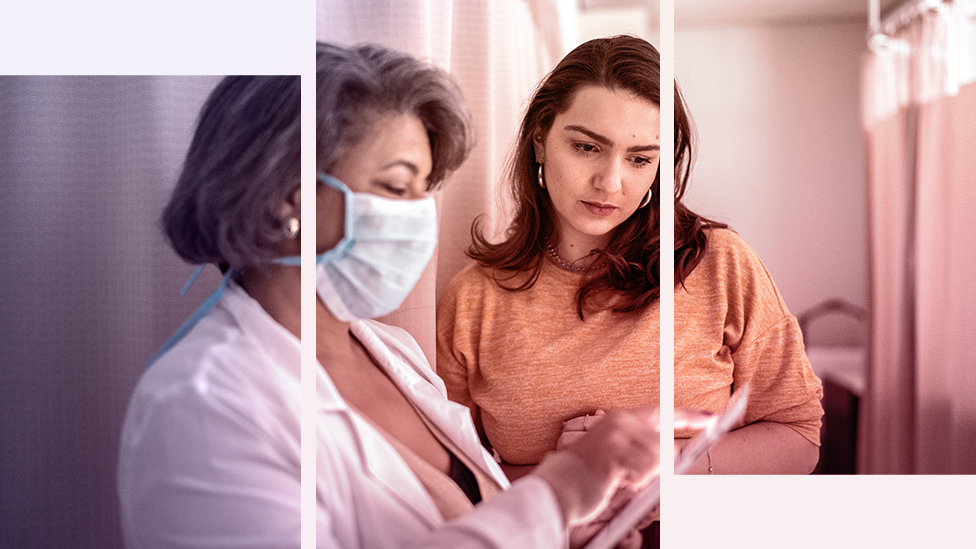Menopause: Why cancer meant I went through it before my mum
- Published
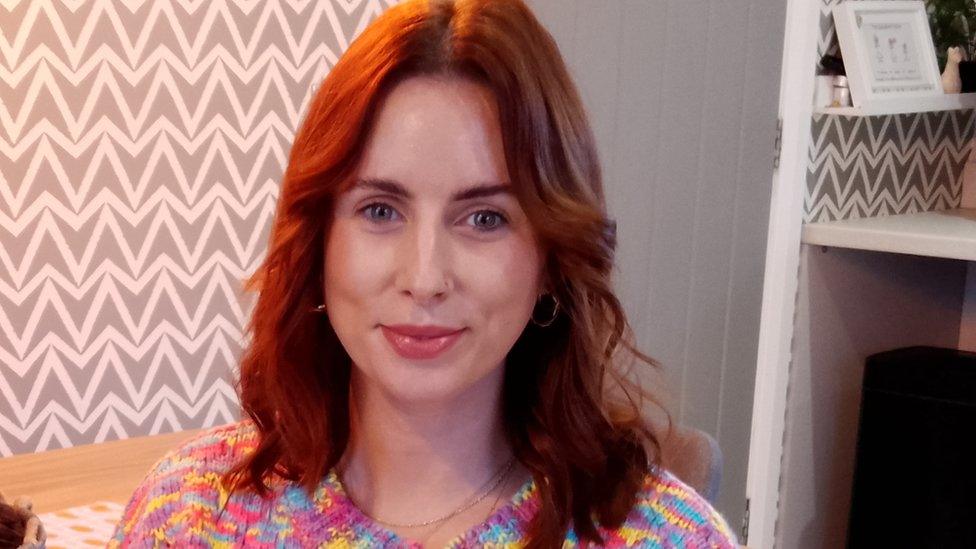
Aisling Gallagher says more education is needed for younger people on what causes early menopause
Aisling Gallagher was just 28 when she began radiotherapy treatment for rectal cancer - and was given another cruel blow.
Her treatment was going to force her into the menopause. She would have to face another new challenge much earlier than she anticipated.
"One of the biggest reality checks for me was going through the menopause experience before my mum," she said.
Now 31, the fashion blogger from Crumlin, County Antrim, said people should feel free to speak out about a subject that too often went unspoken.
"Every woman is going to go through the menopause no matter what age it happens - it definitely needs to be spoken about a lot more," she said.
This was a reality Aisling had to face after she was told the radiotherapy to treat the cancer would affect her fertility.
She was given a four-week window to freeze her eggs, but due to a low egg count and risk of infection she decided not to proceed.
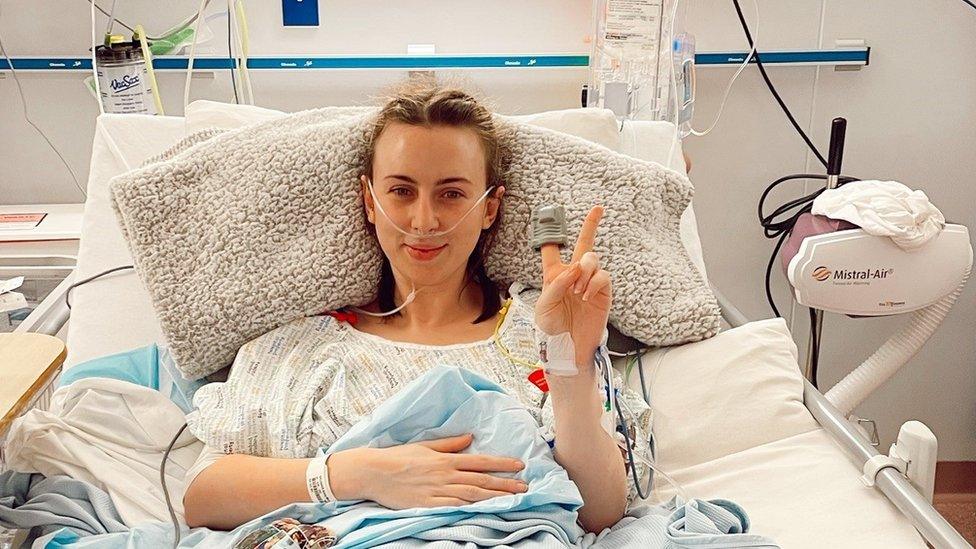
The fashion blogger from Crumlin, County Antrim, was diagnosed with rectal cancer aged 28
"For me it may have been another heartbreak down the line as the eggs might not have worked," she told BBC News NI.
As well as not being able to have biological children, the treatment also forced her into the menopause.

What is the menopause?
The menopause is when a woman's periods stop due to lower hormone levels.
It can have an impact on a woman's physical and mental health.
Symptoms can include anxiety, depression, brain fog and hot flushes.
It usually affects women between the ages of 45 and 55 but it can happen earlier.
Premature menopause is when a woman's periods stop before the age of 45. This can happen naturally or, as in Aisling's case, as a side effect of some treatments like radiotherapy .

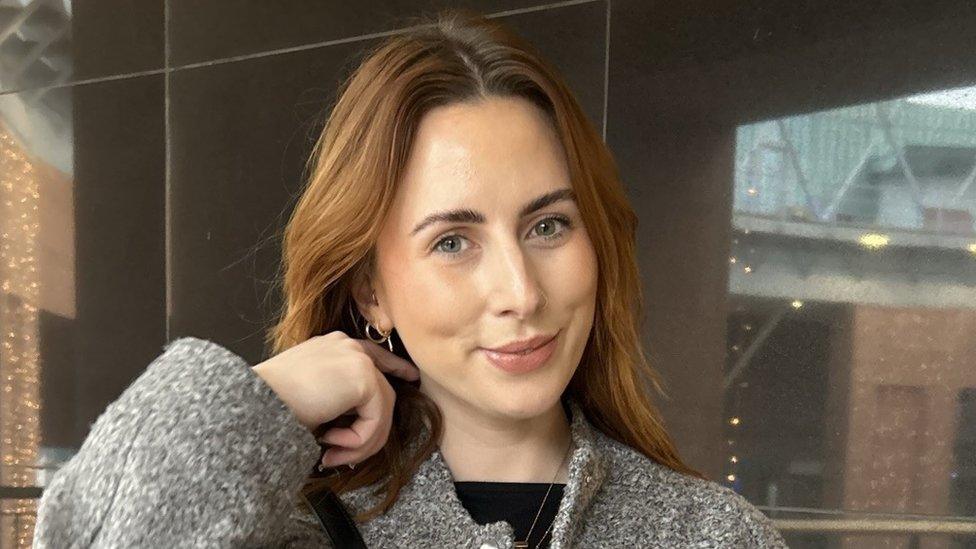
Aisling's symptoms started with hot flushes
Aisling said her symptoms started with hot flushes - but because she was also going through cancer treatment it was hard to pinpoint the side effects.
"I had to wait until my cancer treatment was finished until I could go on Hormone Replacement Therapy (HRT)," she said.
HRT is a treatment used to help menopause symptoms. It replaces hormones that fall to low levels and can help treat symptoms such as anxiety and low moods.
Three years on, Aisling said the situation was still something she had to navigate.
"The main reality of going through the menopause early is not having a family," she said.
"Some days you completely forget about it and it's irrelevant - then even thinking about dating or doing anything like that, I just freak out.
"I think I'm going to have to tell the person I'm dating straight away that I've been through the menopause."
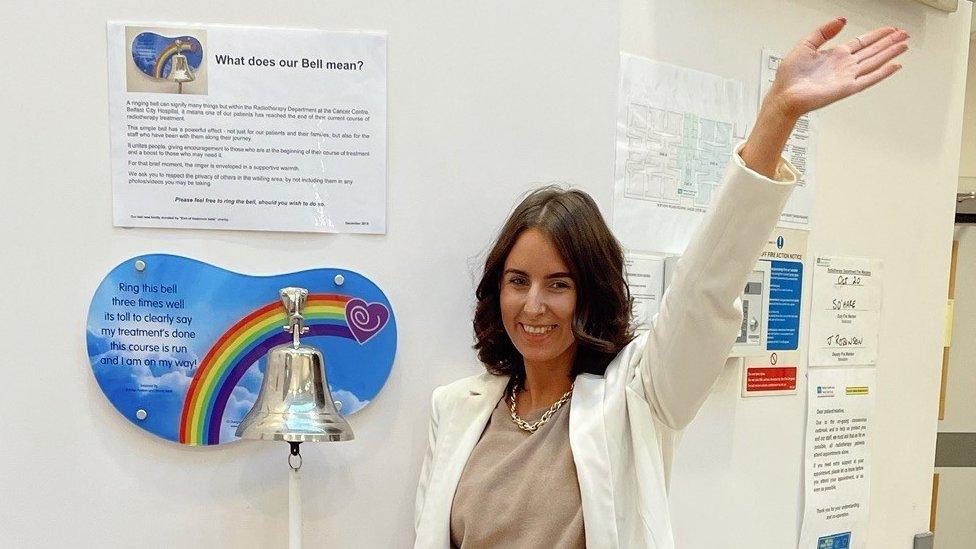
Aisling is calling for more education around the menopause
But, she believes that more education for younger people about early menopause, and its possible causes, would make it easier for others to navigate.
"In general menopause, fertility, things like that - it's such a part of growing up," she said.
"Every woman is going to go through the menopause no matter what age it happens - it definitely needs to be spoken about a lot more.
"I think if everybody had a wee bit more education around it, there will be more awareness."
Increasing awareness
The Department of Education said young people had the opportunity to learn about menstruation in both primary and post-primary school but, due to the age profile of pupils, menopause may not currently be taught in schools.
Aisling's sentiments are something organisation The Daisy Network agrees with.
It is the only organisation in the UK dedicated to providing information and support to young women diagnosed with Premature Ovarian Insufficiency, also known as premature menopause.
Corinna Bordoli, from the group, said infertility is something that could affect someone's mental health.
"In the past few years there is a lot of media noise about the menopause but there isn't a focus on younger women," she said.
"It's very different for someone who is so young. It is massively life-changing for their present but also their future.
"It's about educating people but it's also about doing the research and asking is there a better way to support younger women."
Aisling said that going through the menopause at a young age could be daunting and lonely even if you had a good circle around you.
Her advice? Take things one day at a time.
Related topics
- Published17 October 2023
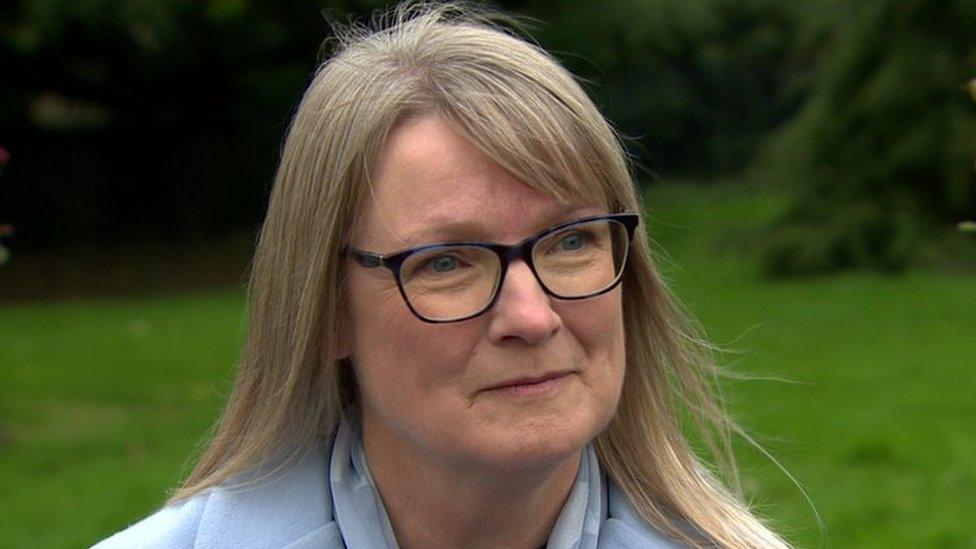
- Published7 November 2024
